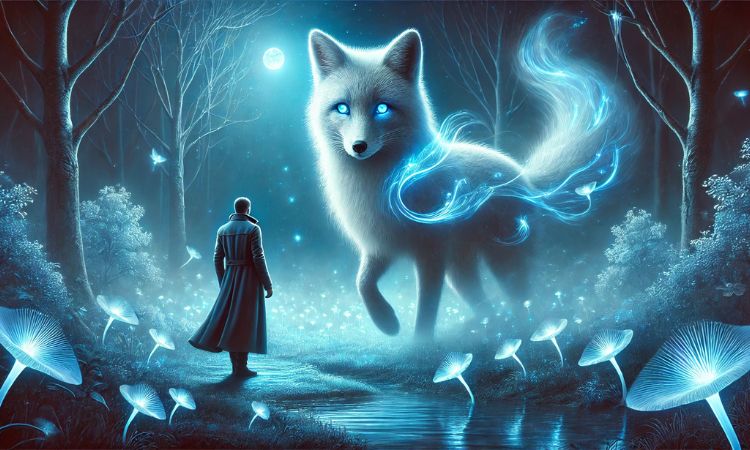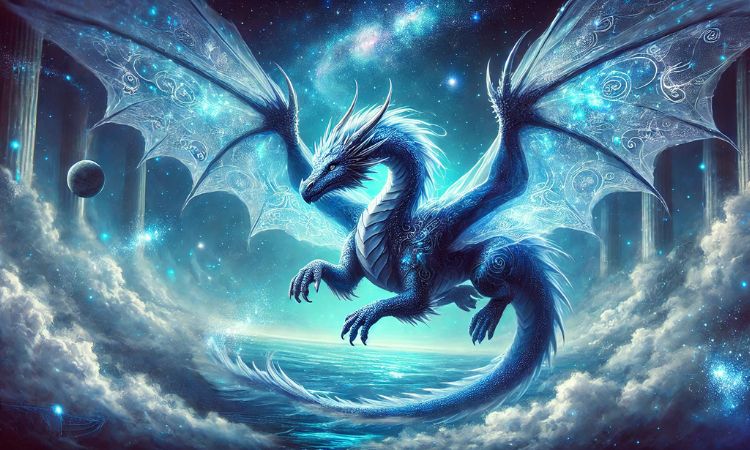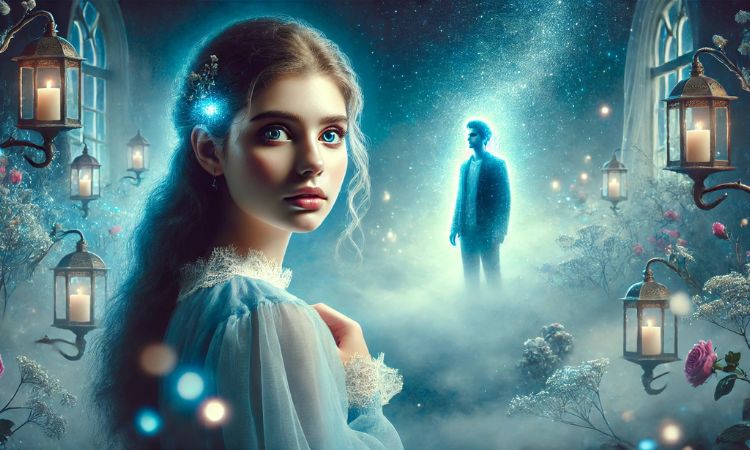Dreaming about horses can stir up powerful emotions, especially when viewed through a biblical lens. Many people find themselves wondering what these dreams truly mean, searching for answers within their spiritual beliefs. Understanding the meaning behind horses in dreams isn’t always straightforward, which can lead to confusion and uncertainty.
Horses in the Bible carry deep spiritual significance. From the fiery red horse in the Book of Revelation to the majestic white horse representing victory, their presence is often tied to powerful themes. But what do these biblical meanings reveal when horses appear in our dreams?
If you’ve had a dream about a horse and are struggling to interpret its spiritual message, you’re not alone. In this article, I’ll explore the biblical meaning of horses in dreams and provide clear insight into what your dream could symbolize. Let’s uncover the answers together.
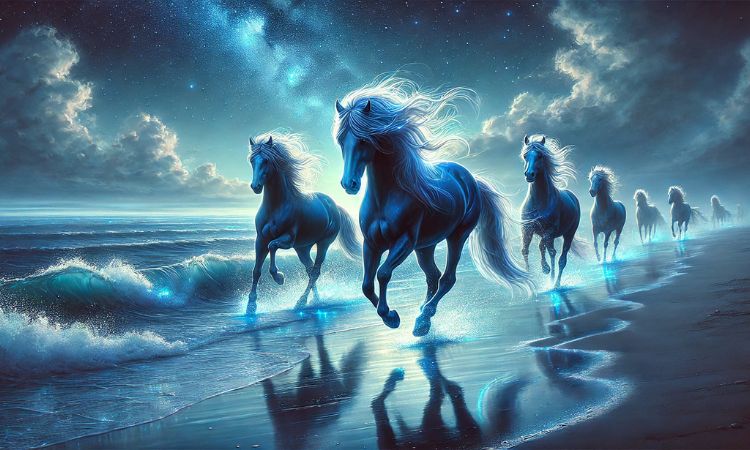
Key Takeaways
- Strength and Power: Horses in dreams often symbolize resilience, inner strength, and divine power, urging personal and spiritual endurance.
- Divine Guidance: Horses can represent God’s intervention and protection, reminding dreamers to trust divine guidance in life’s journey.
- Freedom and Autonomy: Dreaming of horses reflects desires for independence and self-determination, encouraging dreamers to pursue personal freedom.
- Spiritual Warfare: Horses in dreams may signal spiritual battles, symbolizing the need for vigilance and preparation against upcoming challenges.
What Is the Biblical Symbolism of Horses?
Horses carry deep biblical symbolism, often representing strength, power, and freedom. They appear in various contexts, each revealing a distinct spiritual meaning tied to divine messages.
- Strength and Power: In biblical texts, horses are often symbols of strength and power, particularly in battle. Proverbs 21:31 highlights that while horses are prepared for war, true victory belongs to God. This illustrates their association with martial prowess but reminds believers that divine guidance surpasses human strength.
- Freedom and Conquest: Horses in biblical stories often symbolize freedom and conquest. Revelation 19:11 describes Jesus returning on a white horse, representing ultimate victory and righteous judgment. This imagery connects horses with divine triumph over evil, emphasizing their role in spiritual warfare and justice.
- Human Ingenuity and Divine Limits: The book of Job (Job 39:19-25) uses horses to reflect human ingenuity and the limits of human strength. Despite their might, these animals remind us that true power comes from trusting in God, not in earthly abilities like military strength or wealth.
- Nobility and Prosperity: In ancient societies, horses were symbols of nobility and prosperity. Their association with wealth and high status is evident in various biblical references. However, prophetic writings also caution against relying on them too heavily, linking horses with human folly or unbridled passion.
What Does Horses Symbolize in the Biblical Dream?
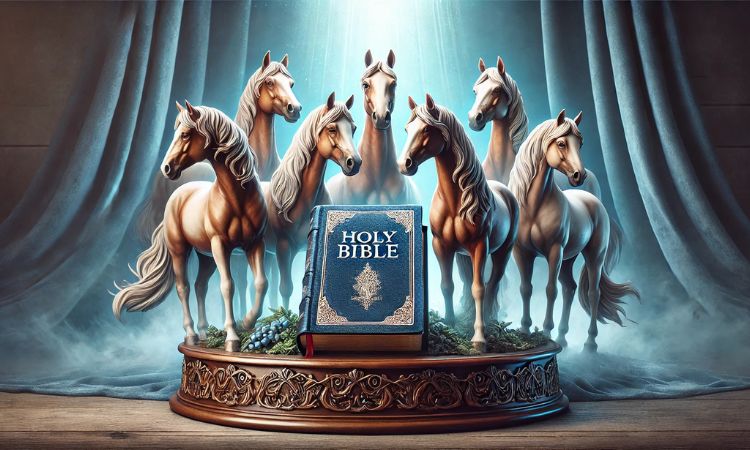
Horses in biblical interpretation of horses in dreams carry deep symbolism, often conveying powerful spiritual messages. The meaning can vary, reflecting themes of strength, divine intervention, and personal transformation.
Strength and Power
In biblical dreams, horses often symbolize strength and power. They reflect the dreamer’s resilience and inner determination, much like their portrayal in Scripture. This symbolism highlights the connection between personal strength and spiritual endurance, where the horse represents the might needed to overcome challenges.
Divine Guidance
Horses in biblical dreams may symbolize divine guidance. When horses appear, they can represent God’s intervention in the dreamer’s life. Biblical stories often link horses to God’s presence and protection, reminding the dreamer that they are not alone in their journey, whether spiritual or physical.
Spiritual Warfare
Dreams involving horses may point to spiritual warfare. In the Bible, horses sometimes signify battles, particularly in visions like those found in the book of Zechariah. Different colored horses, such as red or black, can symbolize various forms of divine judgment or conflict, indicating the spiritual struggles the dreamer may face.
Freedom and Autonomy
A horse in a biblical dream can also symbolize a longing for freedom. Horses represent autonomy and the desire to break free from constraints. This symbolism is tied to the dreamer’s pursuit of independence and self-determination, encouraging them to take control of their life’s direction.
Purity and Victory
White horses in dreams often symbolize purity and victory. The imagery mirrors the depiction of Jesus returning on a white horse in the Book of Revelation. A white horse in a dream can signify triumph over evil or righteousness, offering a sense of spiritual victory and renewal for the dreamer.
Warnings or Premonitions
Horses in dreams may serve as warnings of impending danger. The color of the horse can offer additional insight, with red horses often symbolizing war and black horses indicating famine or hardship. These dreams encourage the dreamer to be vigilant and aware of potential challenges ahead.
Personal Growth
Horses in dreams can also symbolize personal growth. Overcoming adversity or undergoing transformation is often represented by horses, which serve as a reminder of the dreamer’s journey toward spiritual and emotional maturity. The horse reflects the strength needed to evolve through life’s trials.
How Can the Color of a Horse in a Dream Affect Its Biblical Meaning?
The color of a horse in a dream can dramatically impact its biblical meaning. Each color holds a unique symbolic significance that shapes the overall interpretation of the dream.
- White Horses often symbolize purity, righteousness, and divine victory. In the Book of Revelation, a white horse is associated with the triumphant return of Jesus Christ, signifying spiritual conquest and the ultimate defeat of evil. Dreaming of a white horse may represent a journey toward moral clarity or a significant spiritual victory in your life.
- Black Horses typically symbolize famine, scarcity, and hardship. In Revelation, the black horse is one of the Four Horsemen, linked to economic imbalance and the challenges that come with it. When a black horse appears in a dream, it may suggest that you are entering a difficult phase and need to exercise wisdom and careful planning to navigate through it.
- Red Horses are often associated with war, conflict, and bloodshed. In biblical visions, such as those in Revelation, the red horse symbolizes strife and violent disputes. Dreaming of a red horse may indicate an impending conflict in your life, signaling a need for caution and preparation to manage the situation effectively.
- Pale (or Ashen) Horses represent death and mortality. The pale horse in Revelation is linked to the end of life, often accompanied by disease or pestilence. If a pale horse appears in a dream, it may symbolize a period of closure, transition, or even an awareness of life’s fleeting nature, prompting reflection on one’s spiritual state.
- Brown Horses symbolize humility, reliability, and endurance. Their earthy tones connect them to stability and groundedness, reflecting a steady and dependable presence in the dreamer’s life. Dreaming of a brown horse may suggest a need to embrace these qualities or recognize them in someone around you, as they can be instrumental in facing life’s challenges.
What Do Different Types of Horse Dreams Mean Biblically?
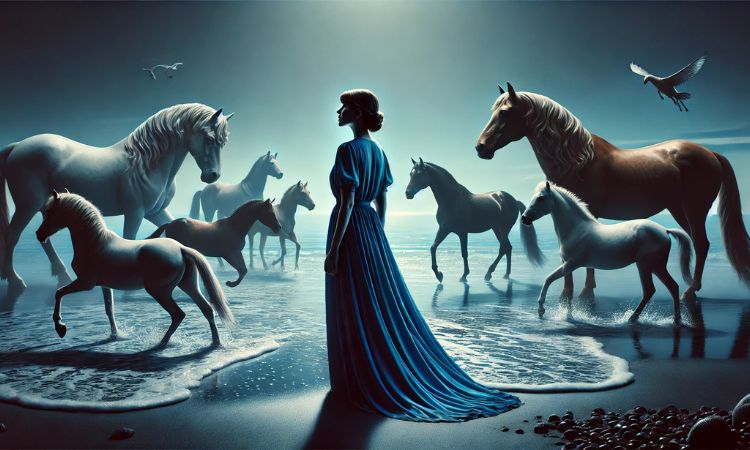
Different types of horse dreams in the Bible carry distinct meanings, each reflecting various spiritual messages and themes. These dreams often offer insights into one’s personal and spiritual journey, resonating with biblical symbolism.
Dreaming of multiple horses often signifies a mix of challenges and opportunities. In the Bible, horses are connected to power and strength, and seeing many of them may indicate an upcoming period of spiritual testing or growth. This dream could serve as a reminder to prepare for life’s battles, much like the horses in Zechariah’s visions that symbolize God’s watchfulness and judgment.
A wild or unbridled horse usually symbolizes freedom and independence. Biblically, such a dream may reflect the dreamer’s longing for spiritual autonomy or a desire to break free from worldly constraints. It could also indicate that the dreamer is ready to embark on a new and courageous spiritual journey, embracing the unknown with faith.
Seeing a riderless horse in a dream often points to a lack of control or direction. This imagery can symbolize the need for divine guidance, suggesting that the dreamer should seek God’s wisdom to find purpose and clarity. Without a rider, the horse may represent a journey that lacks direction, highlighting the importance of spiritual leadership.
Riding a horse in a dream can symbolize control, power, and progress. Biblically, it may represent the dreamer’s ability to navigate life’s journey with confidence and determination. This dream could indicate that the dreamer is on the right path, using both strength and wisdom to advance in their spiritual or personal life.
Falling from a horse typically suggests setbacks or a loss of control. Biblically, this might serve as a warning against relying too much on personal strength rather than seeking divine support. The dream may call attention to a need for humility and a reminder that true strength comes from trusting in God’s guidance.
Horses in water often symbolize emotional energy and spiritual cleansing. Biblically, water represents purification, and horses in this context could reflect a period of emotional or spiritual healing. This type of dream might encourage the dreamer to explore deeper spiritual practices and seek renewal in their faith journey.
When horses appear in battle within a dream, this imagery often relates to spiritual warfare. In biblical contexts, horses are frequently linked to war and conflict, representing both power and divine intervention. Dreaming of horses in battle may serve as a reminder to prepare spiritually for challenges ahead, trusting in God’s strength to overcome them.
What Are the Biblical Stories Related to Horses?
Several biblical stories involve horses, highlighting their symbolic and practical roles in ancient times. One prominent theme is the association of horses with warfare. Throughout the Bible, horses are depicted as powerful and swift creatures, often linked to military strength. For example, in Deuteronomy 20:1-2, the Israelites are reassured not to fear their enemies’ horses and chariots because God’s protection outweighs any earthly force. This theme underscores the biblical teaching that reliance on God should supersede dependence on military power.
Another significant story involving horses is found in the Book of Revelation, where the Four Horsemen of the Apocalypse are introduced. These four horsemen—riding horses of different colors—symbolize conquest, war, famine, and death. Their appearance marks a period of judgment and calamity before the end times (Revelation 6:1-8). This imagery is one of the most well-known depictions of horses in the Bible, representing divine intervention and the unfolding of prophetic events.
In the Book of Job, there is a vivid description of the horse’s strength and readiness for battle. God describes the horse as fearless and eager to charge into conflict, highlighting its bravery and indomitable spirit (Job 39:19-25). This passage emphasizes the horse’s remarkable qualities, making it a symbol of God’s creation and power.
Biblical passages also warn against placing too much trust in horses for security. Psalm 20:7 contrasts reliance on horses and chariots with trust in God, reminding believers that true victory comes from divine intervention, not from human strength. This theme appears in several other scriptures, reinforcing the idea that faith in God should always be paramount.
Horses are also integral to the story of the Exodus. As the Egyptians pursued the Israelites, their horses and chariots played a central role in Pharaoh’s army. However, when the Red Sea parted for the Israelites and then collapsed upon the Egyptians, their horses and chariots were destroyed. This event, celebrated in the song of Moses and Miriam, highlights God’s power over human military might (Exodus 15:1-21).
How Should You Respond to the Dreams Featuring Horses?

Responding to dreams featuring horses requires understanding both the symbolic meaning of the horse and the personal context of the dream. Begin by reflecting on the specific details of the dream, such as the horse’s color, condition, and environment. For example, a white horse may represent purity or spiritual victory, while a black horse could symbolize hidden fears or challenging circumstances. By considering these elements, you can begin to unravel the message that the dream may be conveying.
Your emotional response during the dream is another important factor to consider. Positive emotions like joy or a sense of freedom might suggest empowerment, personal growth, or a newfound sense of direction in your life. On the other hand, feelings of fear or anxiety could indicate that you’re facing challenges or uncertainties that need to be addressed. Recognizing these emotional cues can help you identify areas in your life that require attention or change.
Dreams about horses can also serve as a prompt for self-reflection. Use the dream as an opportunity to evaluate your current circumstances, and think about where you might need to make adjustments. For example, if the dream features a wild horse, it might suggest a desire for more freedom or autonomy in your life. Conversely, a riderless horse could point to a lack of direction or control, prompting you to consider how you can regain focus or seek guidance in certain areas.
Setting goals based on the themes in your dream can be a constructive way to respond. If the dream highlights power, progress, or freedom, consider pursuing new opportunities that align with those themes. This might involve taking on a leadership role, embracing a new challenge, or working toward greater independence. By taking actionable steps that resonate with the symbolism of horses in dreams, you can turn these nocturnal messages into real-world progress.
If the dream presents challenges or evokes negative emotions, take this as a sign to address any underlying issues in your waking life. Whether it’s stress, unresolved conflicts, or feelings of being overwhelmed, identify specific areas where you need to take action. Developing a plan to tackle these challenges, whether through problem-solving, seeking support, or making lifestyle changes, can help you navigate the difficulties that the dream may be reflecting.
When Should You Seek Professional Guidance?
If horse dreams become recurring, intense, or emotionally distressing, seeking professional guidance may be helpful. Frequent dreams involving strong emotions might indicate unresolved issues that need deeper exploration. A therapist or dream analyst can help interpret these dreams and uncover underlying emotional or psychological factors affecting your waking life.
During significant life changes or challenging times, horse dreams may carry meaningful messages about navigating these transitions. Consulting a professional can provide insight and support as you work through these changes. Spiritual seekers might also benefit from guidance if horse dreams are part of their journey, as understanding their symbolic meanings can aid in personal growth and spiritual development.
Conclusion
In biblical dream interpretation, horses are powerful symbols that can reflect a wide range of spiritual messages. Their symbolism often relates to strength, divine intervention, and spiritual warfare. Colors also play a significant role, with different hues adding layers of meaning to the dream’s message.
Various types of horse in your dream can indicate freedom, control, challenges, or personal growth. Biblical stories like the Four Horsemen of the Apocalypse and King Solomon’s horses offer deeper insights into their spiritual significance.
Responding to these dreams involves reflecting on the context, your emotions, and using them as tools for self-reflection. Whether the dream encourages setting new goals or addressing challenges, understanding the meaning behind it can guide you toward spiritual and personal growth, aligning your life with the divine messages conveyed through these powerful dreams.
Frequently Asked Questions
Are Horses a Gift From God?
In many spiritual traditions, horses are seen as noble and powerful creatures. Some interpretations suggest that dreaming of horses can symbolize divine favor, guidance, or strength, representing a spiritual gift from God. However, this concept may vary across different cultures and religious beliefs.
Is It Good or Bad to Dream About Horses?
Dreaming about horses is generally positive, symbolizing strength, freedom, and progress. However, the interpretation depends on the dream’s context. A peaceful horse may reflect inner harmony, while an aggressive one could signify conflict or challenges. The overall tone of the dream influences whether it is seen as good or bad.
What Does It Mean When You Dream Of a Horse Running Away?
Dreaming of a horse running away often symbolizes feelings of losing control or something important slipping from your grasp. It may reflect insecurity or fear, suggesting the need to reassess your goals or how you’re pursuing them. This dream can indicate the need to regain focus in your life.
What Does It Mean to Be Chased by Horses in a Dream?
Being chased by horses in a dream could represent running from responsibilities, fears, or emotions in your waking life. It may also suggest feeling overwhelmed by powerful forces or situations. This dream often signals the need to confront challenges directly instead of avoiding them.

